Phytochemicals in African Herbs: A Natural Approach to Women's Health
Women’s health is influenced by a delicate balance of hormones. When this balance is disrupted, it can lead to common conditions such as period pain, PMS, fibroids, PCOS, menopause symptoms, postpartum complications, and digestive discomfort like bloating and gas. Many of these conditions are often treated with synthetic medications, but traditional African herbs offer a natural alternative that has been used for generations.
These herbs, rich in phytochemicals, contain powerful compounds such as flavonoids, alkaloids, and saponins that help regulate hormones, reduce inflammation, and support overall well-being. At Koola Herbals, we bring these effective East African herbal remedies to Europe, where they have been largely unavailable. By incorporating these herbs into daily health routines, women can find relief from discomfort and support their bodies in a natural way.
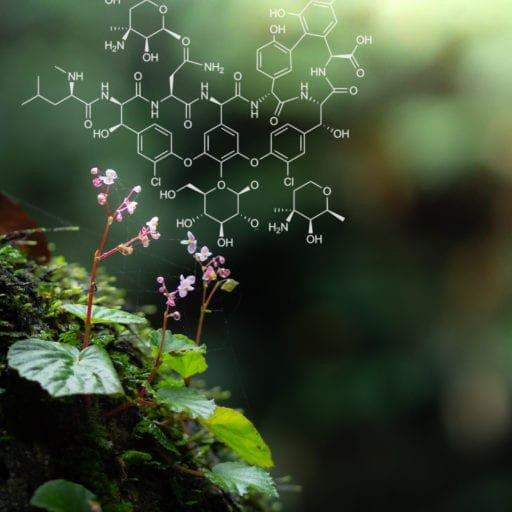
Understanding Phytochemicals and Hormonal Balance
Phytochemicals are natural compounds found in plants that contribute to their medicinal properties. In women’s health, certain phytochemicals can regulate estrogen and progesterone, two key hormones that affect the menstrual cycle, fertility, and menopause.
- Flavonoids: These compounds have antioxidant properties that reduce oxidative stress, which is linked to the growth of fibroids and hormone imbalances. They also have anti-inflammatory effects that help with period pain and PMS.
- Alkaloids: Some African herbs contain alkaloids that act as muscle relaxants, easing cramps and digestive discomfort. They can also influence hormone production, making them useful for conditions like PCOS and menopause.
- Saponins: These compounds help regulate cholesterol levels, which is important because cholesterol is needed to produce hormones like estrogen and progesterone. Saponins also have immune-boosting properties that aid postpartum recovery.
By supporting hormonal balance and reducing inflammation, phytochemicals play a vital role in managing women's health conditions.
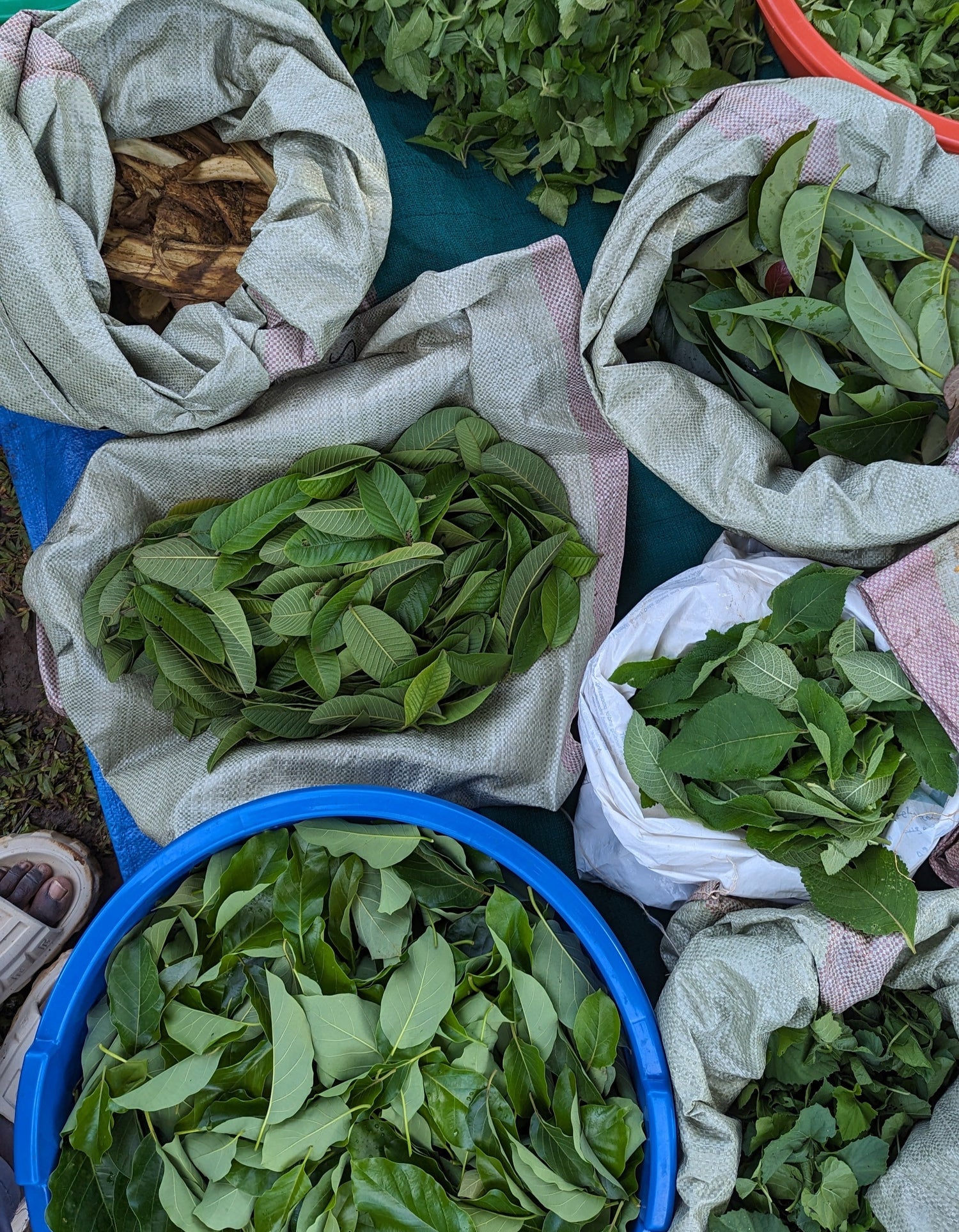
East African Herbs for Common Women's Health Issues
East Africa is home to a wide variety of medicinal plants that contain phytochemicals beneficial for women’s health. Here are some of the most effective herbs for addressing period pain, hormonal imbalances, postpartum recovery, and digestive issues.
1. Herbs for Menstrual Pain and PMS
Many women experience painful cramps, bloating, and mood swings before or during their periods. These symptoms are often caused by hormonal fluctuations and inflammation. Some East African herbs have natural muscle-relaxing and anti-inflammatory properties that can ease discomfort.
- Bidens pilosa: This herb has pain-relieving and anti-inflammatory effects that help reduce menstrual cramps. It also supports immune function, which can be beneficial for overall reproductive health.
- Erythrina abyssinica: Known for its alkaloid content, this herb helps relax uterine muscles, reducing pain during menstruation. It also has mild sedative properties, which can help with stress and mood swings.
- Shona cabbage (Cleome gynandra): This plant contains flavonoids that have been shown to reduce inflammation and support the body's ability to balance hormones, helping to ease PMS symptoms.
2. Herbs for Fibroids and PCOS
Fibroids and PCOS are both conditions linked to hormonal imbalances, particularly excess estrogen. Some African herbs contain phytochemicals that help regulate estrogen levels and reduce the size of fibroids or cysts.
- Morella kandtiana: This herb has antioxidant properties that protect cells from oxidative stress, which is linked to fibroid growth. It also supports liver function, helping the body eliminate excess estrogen.
- Melanthra scandens: This plant contains compounds that can help regulate menstrual cycles and reduce symptoms of PCOS, such as irregular periods and hormonal acne.
- Neem tree (Azadirachta indica): Studies suggest that neem helps regulate insulin levels, which is important for women with PCOS, as insulin resistance is often a key factor in the condition.
3. Herbs for Menopause Symptoms
As women go through menopause, estrogen levels decline, leading to symptoms like hot flashes, mood swings, and bone loss. Some East African herbs contain phytoestrogens—plant-based compounds that mimic estrogen in the body and help ease these symptoms.
- Albizia coriaria: This herb has calming properties that can help reduce mood swings and anxiety associated with menopause. It also supports bone health by improving calcium absorption.
- Adenia cissampeloides: Rich in phytoestrogens, this plant helps balance hormone levels, reducing hot flashes and night sweats.
- Spothodea campanulata: This herb supports cardiovascular health, which is important during menopause, as estrogen decline can increase the risk of heart disease.
4. Herbs for Postpartum Recovery
After childbirth, a woman’s body undergoes significant changes. Herbs that support hormonal balance, energy levels, and immune function can help women recover more smoothly.
- Carissa spinarum lodd: This herb is known for its ability to restore energy and boost blood circulation, which can help with postpartum fatigue. It also supports uterine health.
- Fluega virosa: Traditionally used to cleanse the body after childbirth, this plant has anti-inflammatory and immune-boosting properties that support recovery.
- Newtonia buchananii: This herb helps regulate postpartum hormone levels, reducing mood swings and promoting emotional well-being.
5. Herbs for Digestive Health
Bloating, gas, and stomach discomfort are common issues, especially during hormonal changes in the menstrual cycle or menopause. Some East African herbs have carminative properties, meaning they help reduce gas and support digestion.
- African basil (Ocimum gratissimum): This herb has antibacterial and anti-inflammatory properties that support gut health and reduce bloating.
- Hosludia opposita: Known for its ability to soothe the digestive system, this herb helps relieve stomach cramps and gas.
- Aspilia: This plant is used to support digestion and reduce bloating by promoting healthy gut bacteria.
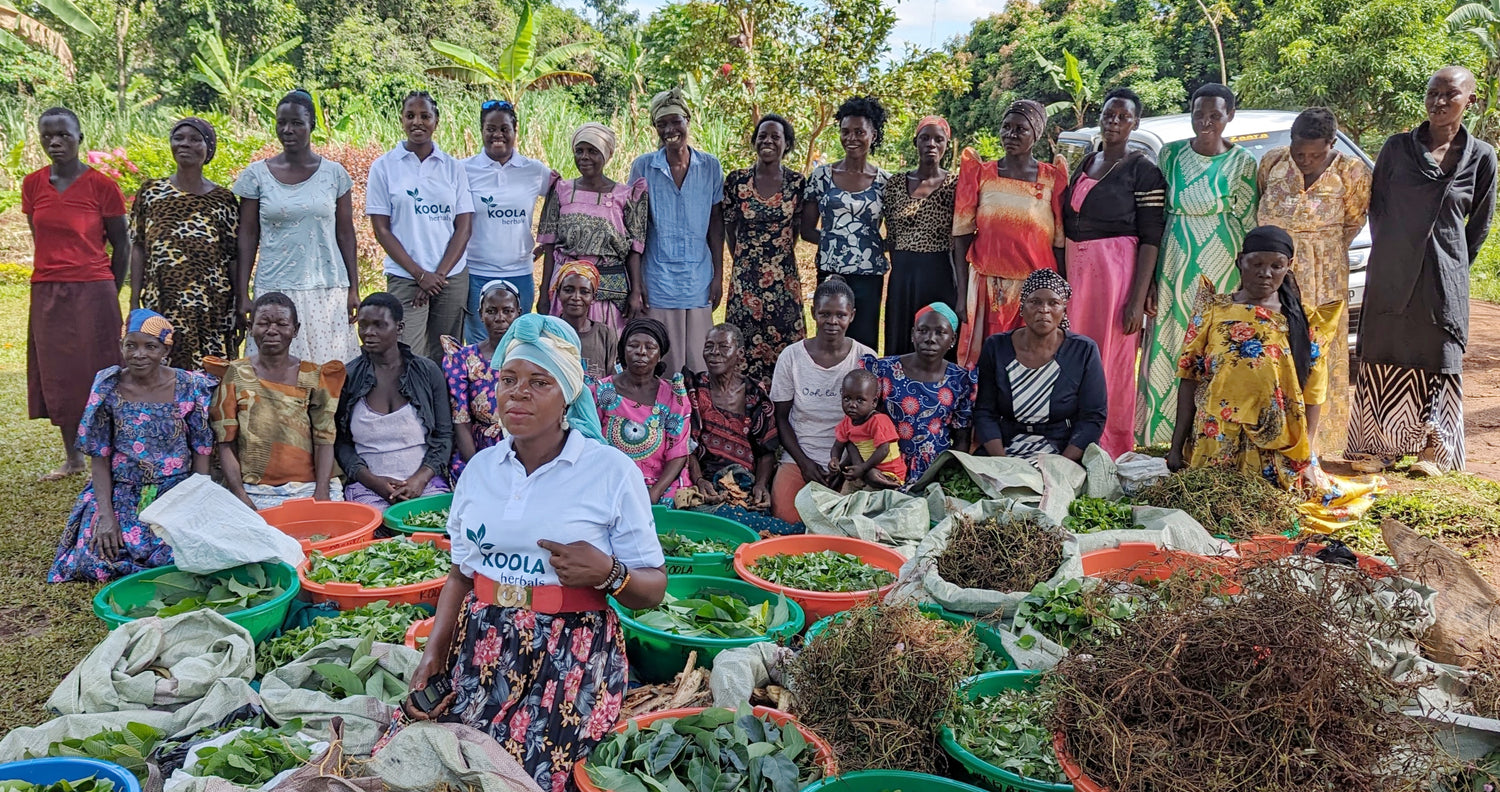
A Natural Way to Support Women's Health
For years, these powerful African herbs have been used in East Africa to support women’s health, but they have been largely unavailable in Europe. At Koola Herbals, we are the first company to bring these remedies to European women, making it easier to access their natural benefits.
Our products are carefully crafted using herbs known for their effectiveness in treating menstrual pain, hormonal imbalances, digestive issues, and more. By using these herbs, women can take a natural approach to managing their health and well-being.
The phytochemicals in East African herbs offer a scientifically backed, natural way to support women's health at every stage of life. Whether it’s reducing period pain, balancing hormones, improving digestion, or easing menopause symptoms, these plants provide an effective alternative to synthetic treatments.
At Koola Herbals, we believe in making these powerful remedies available to women who need them. By incorporating our herbal products into daily routines, women can experience the benefits of East African phytochemicals and take control of their health in a natural way.
Mujaja Tea
The stomach Ease blend
Share
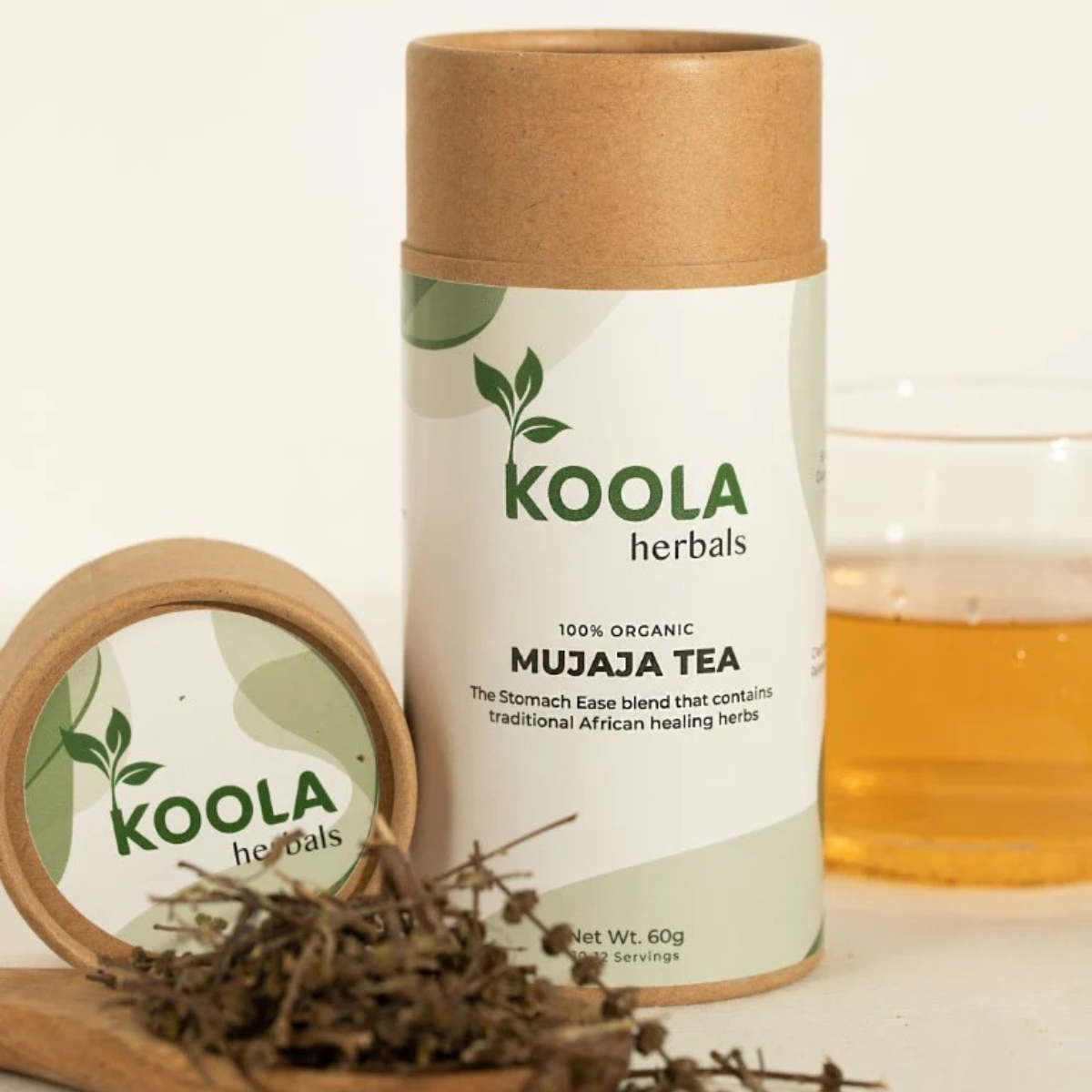


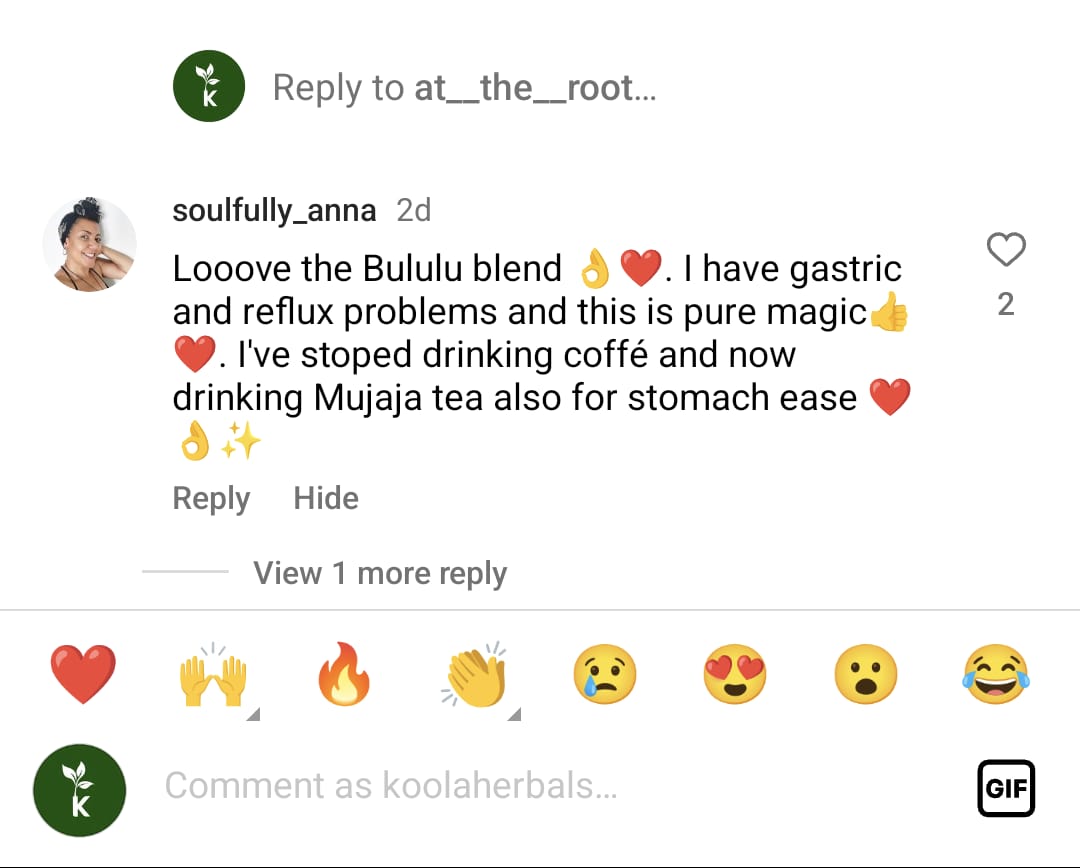


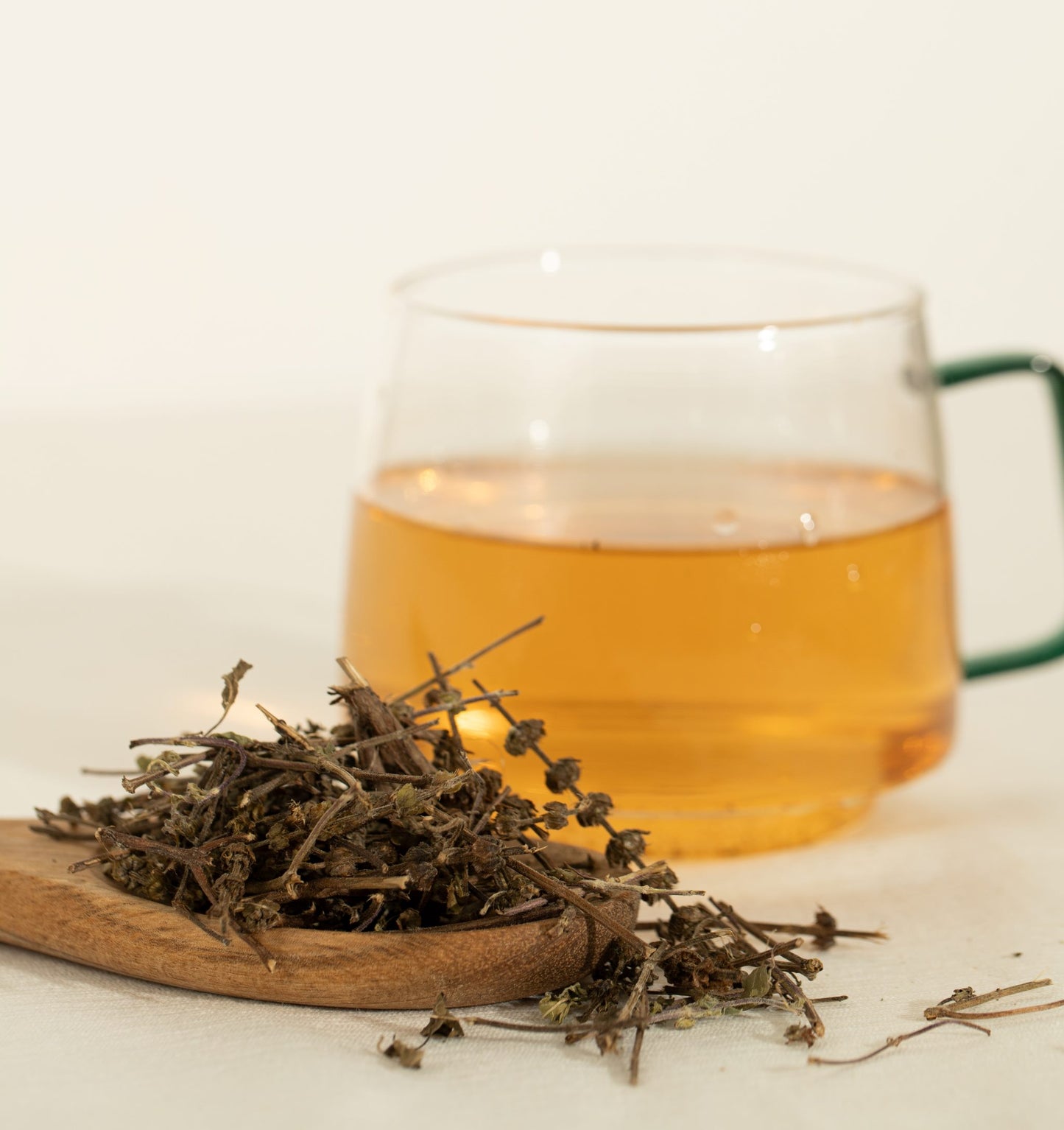


Read more about Women's health
View all-

Menopause: What Happens in the Body?
Menopause is a natural part of aging that affects all women, though the experience varies greatly. It typically occurs between the ages of 45 and 55, starting with irregular periods...
Menopause: What Happens in the Body?
Menopause is a natural part of aging that affects all women, though the experience varies greatly. It typically occurs between the ages of 45 and 55, starting with irregular periods...
-

Women's Health - Feeling Good Through All Life ...
Health is personal, and your needs change over time. We provide tools and advice to help women navigate different life stages and health concerns.Koola Herbals: Natural Healing and EmpowermentKoola Herbals...
Women's Health - Feeling Good Through All Life ...
Health is personal, and your needs change over time. We provide tools and advice to help women navigate different life stages and health concerns.Koola Herbals: Natural Healing and EmpowermentKoola Herbals...
-

Supplements & Vitamins During Menopause
During menopause, hormonal changes, particularly a drop in estrogen, lead to various physical and emotional symptoms. Menopause is divided into three stages: perimenopause (before the last period), menopause (when periods...
Supplements & Vitamins During Menopause
During menopause, hormonal changes, particularly a drop in estrogen, lead to various physical and emotional symptoms. Menopause is divided into three stages: perimenopause (before the last period), menopause (when periods...




